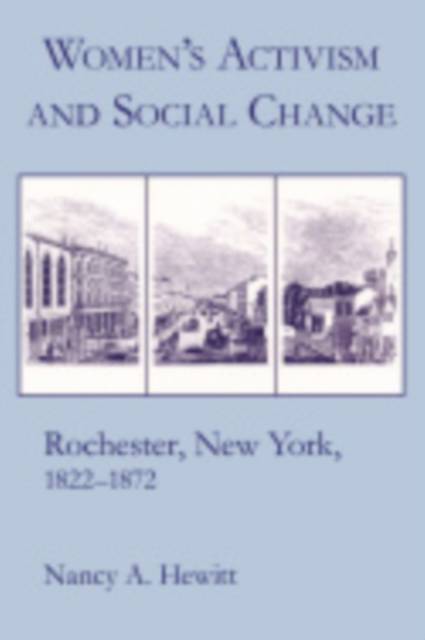
- Retrait gratuit dans votre magasin Club
- 7.000.000 titres dans notre catalogue
- Payer en toute sécurité
- Toujours un magasin près de chez vous
- Retrait gratuit dans votre magasin Club
- 7.000.000 titres dans notre catalogue
- Payer en toute sécurité
- Toujours un magasin près de chez vous
Women's Activism and Social Change
Rochester, New York, 1822 1872
Nancy A HewittDescription
In Women's Activism and Social Change, Nancy A. Hewitt challenges the popular belief that the lives of antebellum women focused on their role in the private sphere of the family. Examining intense and well-documented reform movements in nineteenth-century Rochester, New York, Hewitt distinguishes three networks of women's activism: women from the wealthiest Rochester families who sought to ameliorate the lives of the poor; those from upwardly mobile families who, influenced by evangelical revivalism, campaigned to eradicate such social ills as slavery, vice, and intemperance; and those who combined limited economic resources with an agrarian Quaker tradition of communialism and religious democracy to advocate full racial and sexual equality.
Spécifications
Parties prenantes
- Auteur(s) :
- Editeur:
Contenu
- Nombre de pages :
- 282
- Langue:
- Anglais
Caractéristiques
- EAN:
- 9780801495090
- Date de parution :
- 28-01-88
- Format:
- Livre broché
- Format numérique:
- Trade paperback (VS)
- Dimensions :
- 149 mm x 227 mm
- Poids :
- 394 g







